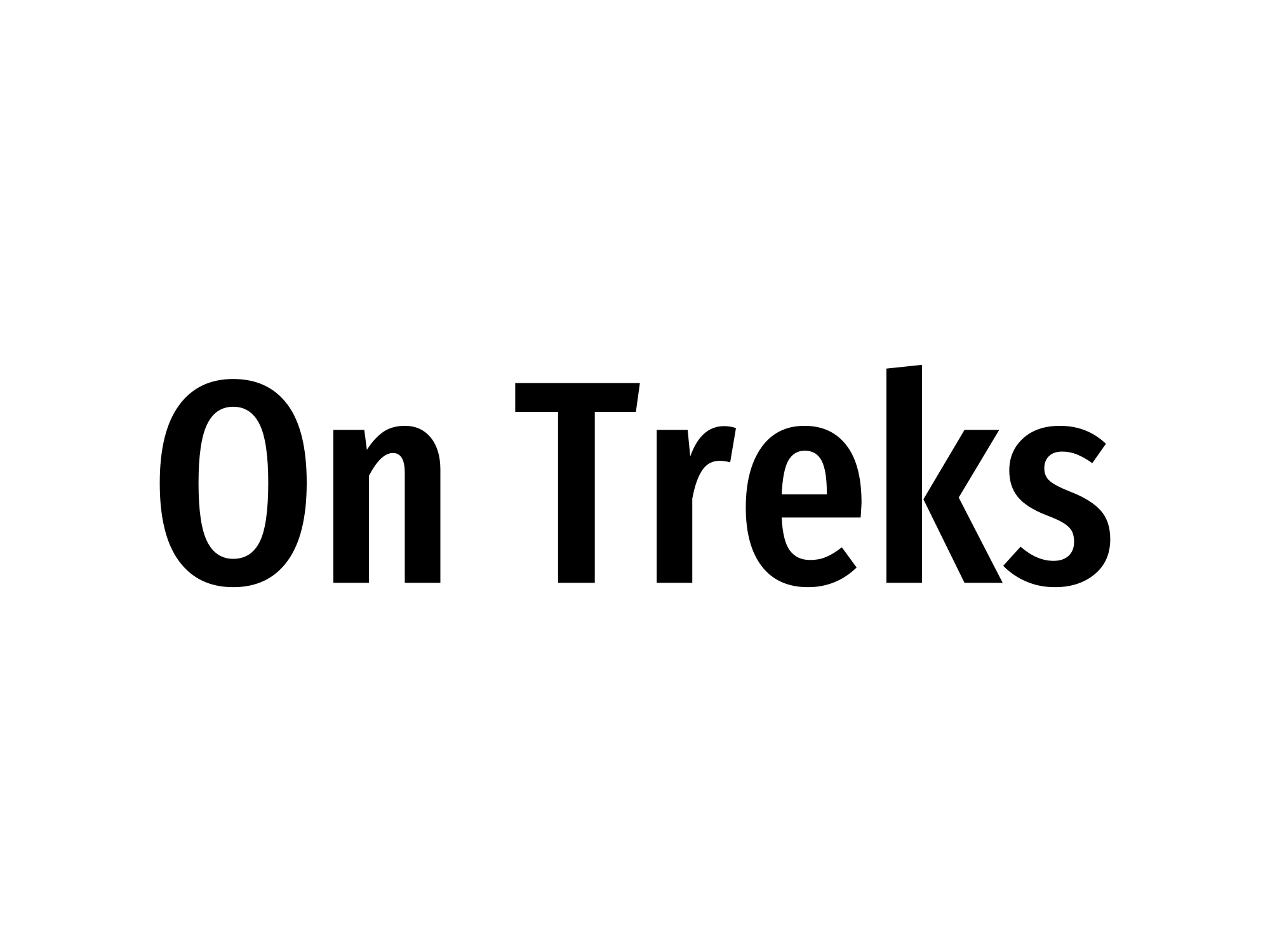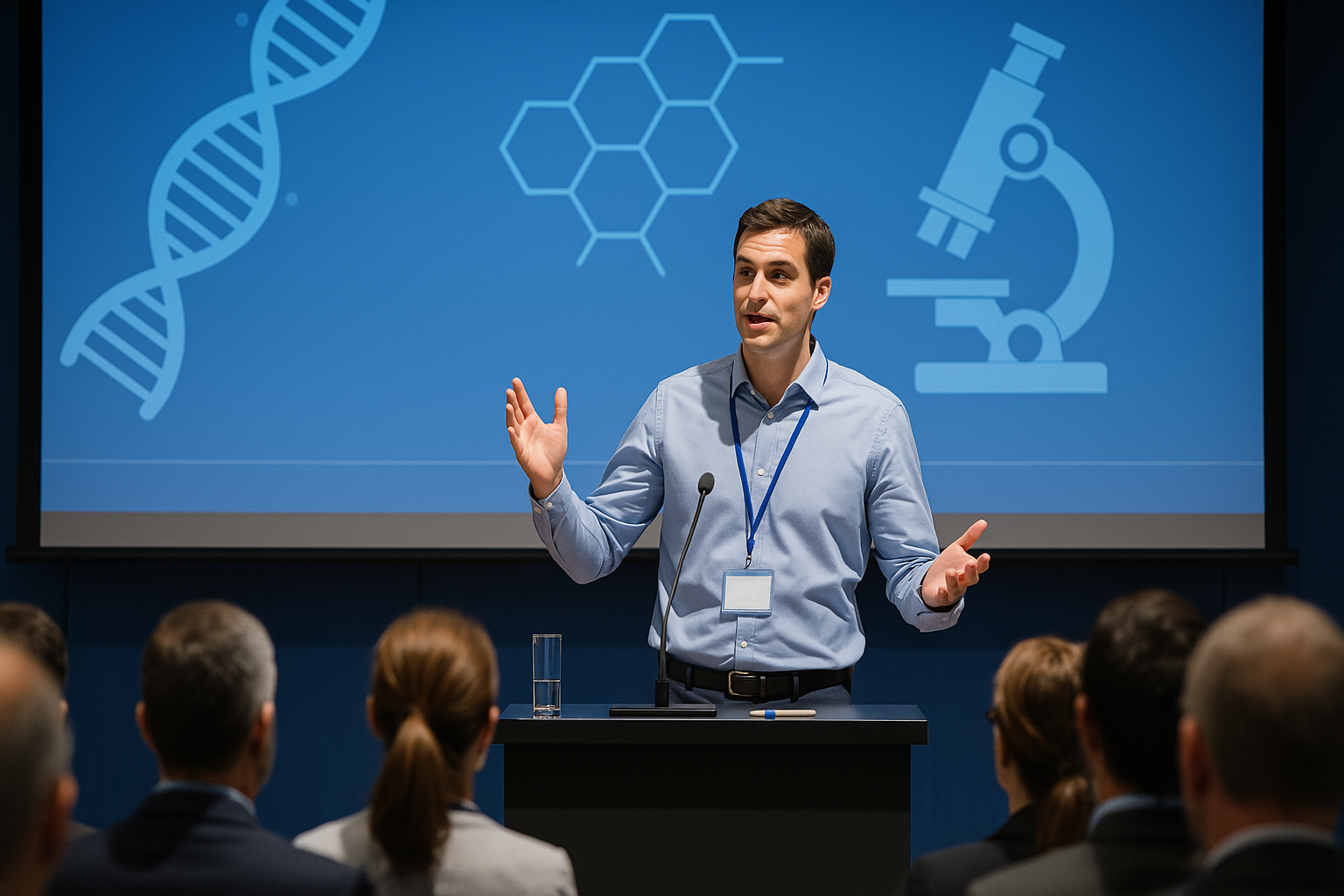The sheer volume of groundbreaking research, evolving regulations, and the constant buzz about the next big thing can leave some of the most dedicated product developers feeling a tad overwhelmed. You’re juggling experiments, deadlines, and the persistent rumor of a new lab snack thief – who has time to wade through endless journals and decipher cryptic online databases?
But fear not, intrepid innovator. There exists a powerful, albeit sometimes overlooked, tool in your arsenal: the industry conference. Think of it as a highly concentrated dose of knowledge, a potent networking elixir, and, let’s not forget, a potential source of surprisingly good coffee. Here are a few compelling reasons why attending these gatherings is a good idea when your goal is to develop and launch a successful product.
The Information Buffet
While the promise of lukewarm coffee and slightly stale pastries might not immediately set your pulse racing, the information available at biotech conferences is truly invaluable. These events are specifically designed to showcase the latest and greatest within particular therapeutic areas of the industry.
This focused approach means that instead of spending countless hours sifting through the vast expanse of scientific literature, you can immerse yourself in the most recent advancements directly relevant to your product’s specific niche. This targeted exposure can significantly accelerate your understanding of the competitive landscape and the emergence of new, potentially game-changing technologies.
The real magic happens in the direct exchange of knowledge. Conferences and seminars serve as platforms where researchers, scientists, academics, and business experts converge to share their most recent findings, breakthroughs, and the very latest developments in biotechnology.
This dynamic environment allows for the dissemination of information that often precedes formal publication in peer-reviewed journals. By attending these sessions, product developers gain a significant advantage, accessing cutting-edge research and data sometimes years before it becomes widely available. This early insight can be important for anticipating market shifts, identifying potential opportunities or threats, and even strategically pivoting product development efforts based on the most up-to-date information.
Furthermore, conferences offer a unique opportunity to witness novel technologies, approaches, and procedures firsthand through engaging talks, interactive workshops, and compelling demonstrations. Seeing a piece of cutting-edge equipment in action or hearing directly from the developers of a groundbreaking technique provides a level of understanding that simply cannot be gleaned from reading a paper or browsing a website.
This experiential learning can be instrumental in making informed decisions about adopting new tools or methodologies to enhance your own product development process. The programs are often meticulously curated to cover the practical implementation and application of the very latest technologies, techniques, and best practices across all major biomolecular resource disciplines.
Whether it’s hearing from key innovators in genomics, delving into the intricacies of digital PCR and liquid biopsies, or gaining a deeper understanding of emerging single-cell technologies, conferences provide a concentrated learning experience. Attendees can also gain direct knowledge of breakthrough therapies and the application of advanced technologies like wearable medical technology and artificial intelligence in clinical trials, potentially sparking new ideas and avenues for their own product development endeavors.
Networking, Because Your LinkedIn Connections Can’t Buy You Coffee (or Introduce You to Investors)
Who you know can often be just as important as what you know. While platforms like LinkedIn offer a valuable way to maintain connections, industry conferences provide unparalleled opportunities for genuine, face-to-face networking with like-minded individuals. Unlike the awkward online introductions, these events are about forging stronger human connections that can lead to invaluable opportunities down the line.
The in-person interactions that occur at conferences are probably more effective at fostering strong emotional connections and building trust compared to purely digital communication. These relationships, built on mutual understanding and shared experiences, can be the foundation for meaningful collaborations, strategic partnerships, and even important career advancements. Conferences serve as fertile ground for forming these strategic alliances, potentially unlocking access to new markets, shared resources, and synergistic collaborations that can propel your product forward.
You never know when a chance encounter at a poster session or an informal conversation during a networking reception could lead to a game-changing partnership. In fact, the informal settings at conferences, such as coffee breaks, lunches, and dedicated social events, often facilitate these “productive encounters” where collaborations and partnerships can be initiated organically.
Beyond formal partnerships, networking at biotech conferences can lead to personal job referrals or provide insights into opportunities that are not even publicly advertised. The attendees represent a diverse mix of professionals passionate about biotech, including industry experts, leading researchers, venture capitalists, and ambitious entrepreneurs.
This tapestry of connections provides a wide range of perspectives and potential avenues for collaboration, funding, and career growth. Major conferences frequently host exhibitors from established biotech and pharmaceutical companies, as well as funding agencies, providing a unique opportunity to explore new technologies, understand available funding opportunities, and even explore potential career prospects – all under one roof. These events inherently facilitate knowledge sharing and foster a collaborative environment conducive to research, development, implementation, and the broader dissemination of knowledge within the field.
Establishing and maintaining these social and professional relationships is a recognized key impact of attending conferences, contributing significantly to an individual’s and a company’s success. It’s even been suggested that scientists who actively participate in conferences are more likely to engage in co-authorship of research papers, highlighting the tangible benefits of these networking opportunities.
Staying Ahead of the Game (Without Having to Invent Time Travel)
The biotech landscape is in a constant state of flux, with new discoveries and innovations emerging at an astonishing rate. Conferences serve as a vital compass, helping you navigate this ever-changing terrain.
Attending industry conferences offers a highly efficient method for staying updated on the cutting-edge innovations and emerging trends within the biotech and life sciences sectors. This concentrated approach to information gathering saves valuable time compared to the often laborious process of individually monitoring numerous publications, online resources, and industry news outlets.
Conferences curate the most current and significant developments into a condensed timeframe and location, allowing attendees to gain a broad yet insightful overview of the major advancements in just a few days. This efficiency is particularly important for busy professionals who need to remain informed without getting bogged down in an overwhelming deluge of information.
Furthermore, carefully observing fellow exhibitors and attendees at conferences can provide important insights into competitors’ offerings, their strategic approaches, and their overall market positioning. This competitive intelligence, gathered ethically and through observation, can be pivotal in refining your own business and product development strategies, ultimately helping you stay ahead in a highly competitive market. By analyzing competitors’ presentations, examining their booth displays, and even engaging in casual conversations, product developers can gain a deeper understanding of their strengths, weaknesses, target markets, and overall strategic direction. This knowledge allows for informed decision-making regarding product differentiation, marketing efforts, and long-term strategic planning.
Conferences often feature dedicated sessions and panels that specifically address prevailing biotechnology industry trends, provide valuable market insights, and explore effective commercialization strategies, offering a broader understanding of the forces shaping the industry. Moreover, exposure to cutting-edge research happening beyond your immediate area of focus can spark interdisciplinary ideas and foster innovation in unexpected ways.
Many conferences also cover the practical translation of research into clinical practice, such as the advancements in medical genetics and genomics, ensuring attendees stay updated on the real-world applications of scientific discoveries. Ultimately, these gatherings provide a significant boost to innovation by bringing together experts who share their latest developments and offer glimpses into future trends, allowing attendees to be part of the conversation that shapes the future of the industry.
Finding Missing Pieces (and Maybe Some Free Swag)
Developing a successful product in the biotech and life sciences sector is often like piecing together a complex puzzle. Conferences can be invaluable in helping you find those missing pieces, connecting you with the knowledge and resources needed to overcome the inevitable challenges. They can play a relevant role in bridging the gap between the theoretical knowledge gained from academic study and the practical realities of bringing a biotech product to market.
By providing exposure to real-world case studies and offering practical insights shared by seasoned industry professionals, conferences help product developers anticipate and effectively navigate the myriad challenges inherent in their development journey. Hearing about the experiences – both successes and setbacks – of others in the field can provide invaluable lessons and strategies for tackling complex issues related to drug development, clinical trials, manufacturing processes, and navigating the intricate regulatory landscape. Many conferences specifically address key bio-innovation trends, tracing the path from initial research and discovery to the eventual translation into effective diagnostics, preventative tools, and life-saving treatments.
Attendees can often receive specific advice and guidance on how to proactively avoid potential pitfalls and overcome obstacles in their own individual initiatives. The dynamic discussions that take place at conferences frequently lead to the emergence of innovative solutions to real-world problems, particularly in areas like clinical trial design, patient engagement strategies, and advanced data collection techniques.
It’s widely acknowledged that biotech companies face a multitude of complex challenges, including navigating intricate regulatory environments, managing significant financial pressures, dealing with extended development timelines, and addressing ethical considerations. Conferences often dedicate specific sessions to these very issues, offering insights and strategies for navigating evolving FDA approval processes and the complexities of global regulatory harmonization.
Furthermore, process development is paramount for biotech firms aiming to successfully bring innovative therapies to market. Conferences frequently offer valuable solutions and best practices for tackling manufacturing challenges, ensuring scalability, regulatory compliance, consistency, and cost-effectiveness in production.
Real Stories (Probably Not Exaggerated for Dramatic Effect)
The true impact of attending biotech conferences often manifests in the real connections and collaborations that spark from these gatherings. Numerous anecdotal examples and success stories underscore the tangible benefits. For instance, one individual recounted meeting their second PhD supervisor at a conference, a connection that significantly shaped their academic career. Another attendee reported gaining crucial knowledge through a contact made at a conference, knowledge that directly enabled them to complete a significant publication (1). Even a seemingly casual interaction at a poster session can lead to significant research collaborations, as illustrated by the postdoc who connected with a researcher whose methodology proved invaluable for their own work (1).
Dedicated partnering events within larger conferences, such as Biotech Showcase™, facilitate thousands of one-on-one meetings between investors and biotech companies, directly leading to substantial investments and strategic collaborations that drive innovation (2).
On a broader scale, events like the Swiss Biotech Day have become premier global platforms that actively foster international collaboration and the formation of impactful partnerships within the life sciences sector. While not always initiated solely at conferences, major R&D co-development partnerships, such as the one between Pfizer and BioNTech for the rapid development of the COVID-19 vaccine, often have roots in initial connections and discussions that take place at industry events (3).
Even organizational partnerships can be forged at these gatherings, as demonstrated by the strategic alliance established between BIOQuébec and BioNJ after connecting at industry events, aiming to foster growth and innovation in their respective life sciences ecosystems (4). These real-world examples highlight the transformative potential of attending biotech conferences, turning initial handshakes and conversations into significant breakthroughs and lasting collaborations.
Conference Survival Guide – Tips for the Introverted Biotech Pro (and Everyone Else)
To truly maximize the benefits of attending a biotech conference, a little preparation and strategic thinking can go a long way. First and foremost, you’ll want to choose conferences wisely, ensuring they align with your specific professional goals and product development needs. Once you’ve selected the right event, take the time to prepare a schedule of presentations and abstracts that are most relevant to your company’s objectives. Going in with specific Key Intelligence Questions (KIQs) can help you focus your information gathering efforts and ensure you get the answers you need.
Don’t forget the essentials: bring plenty of business cards – you’ll be surprised how quickly you hand them out. Craft and practice your elevator pitch, a concise and engaging introduction of yourself, your work, and your interests. Make a conscious effort to take advantage of networking opportunities and social events; these informal settings are often where the most valuable connections are made. Remember to follow up with your new contacts soon after the conference – a timely email or LinkedIn message can solidify the connection and pave the way for future interactions.
Poster sessions are often overlooked but can be fantastic opportunities for both networking and in-depth learning. Don’t hesitate to utilize social media platforms to see who else is attending the conference and to connect with individuals whose work aligns with your interests. For those who identify as introverts, networking doesn’t have to be overwhelming. Seek out smaller group discussions or one-on-one meeting opportunities where you can engage in deeper, more focused conversations. Most importantly, focus on building genuine partnerships based on mutual interest rather than simply trying to sell your product or service upon initial meeting. Authenticity and a genuine interest in others’ work will go a long way in building lasting and valuable professional relationships.
And if you want to find out more about how to conduct competitive intelligence at conferences, check out our related article on competitive intelligence at scientific conferences.
The Conference Ecosystem – A Peek Behind the Curtain (and into the Packed Presentation Rooms)
Biotech and life sciences conferences are multifaceted events designed to cater to a wide range of needs and interests within the industry. At their core, they serve as gatherings where scientists, researchers, and industry professionals from diverse fields come together to share their latest research findings, exchange innovative ideas, and discuss their experiences . The typical structure of these conferences includes a dynamic mix of presentations delivered by leading experts, interactive workshops offering hands-on learning experiences, and dedicated networking events designed to foster connections among attendees.
The agenda of a typical biotech conference often features keynote speakers who are luminaries in their respective fields, engaging panel discussions that delve into critical industry issues, and more focused breakout sessions that allow for deeper dives into specific topics. Many conferences also incorporate a vibrant expo hall, where companies and organizations showcase their latest products, cutting-edge services, and innovative technologies, providing attendees with a firsthand look at the tools shaping the future of biotech.
Recognizing the importance of direct business connections, many conferences now offer dedicated partnering platforms that facilitate the scheduling of one-on-one meetings between potential collaborators, investors, and service providers. These events range in scale from large, international conventions that attract thousands of attendees to smaller, more focused summits that cater to specific niches within the industry. To enhance the overall experience, some conferences even incorporate more informal and engaging elements, such as happy hour receptions and poster competitions, creating a more relaxed atmosphere for networking and interaction.
Bottom Line: You May Want to Attend that Biotech Conference
So, should you attend that biotech conference? If you really want to gather some important information needed to propel your product forward, forging valuable connections that could lead to your next big breakthrough, and staying ahead in the relentlessly evolving world of biotech and life sciences, the answer is a “Yes!” Think of it not just as a potentially cool trip, but as a strategic investment in your product’s future – a unique opportunity to learn from the best minds in the field, network with the brightest talents, and maybe even walk away with a few genuinely useful freebies. Just try to avoid any accidental coffee spills on that crucial research poster. We’ll see you in the bustling hallways and packed presentation rooms!
P.S.: If you’re unable to attend conferences, we can do it for you. Check out our Conference Data Gathering & Insights Services (available in the U.S., Canada, and Europe) and contact us.
Table: Key Benefits of Attending Biotech Conferences
| Benefit | Description |
| Information Gathering | Access to the latest research, emerging technologies, and industry trends through presentations, workshops, and demonstrations. |
| Networking | Opportunities to connect with researchers, industry experts, investors, and potential collaborators through formal and informal events. |
| Staying Updated | Efficiently learn about advancements, competitor activities, and market insights, providing a competitive edge. |
| Problem Solving | Gain practical insights and advice on overcoming challenges in product development, regulatory hurdles, and manufacturing processes. |
| Potential Partnerships | Increased chances of forming strategic alliances, research collaborations, and securing funding through direct interactions with potential partners and investors. |
References
1. Wohlrabe, S., & Groß, M. (2020). The Perceived Impact of Attending Academic Conferences. Publications, 8(4), 49. https://doi.org/10.3390/publications8040049
2. Biotech Showcase™ 2025 Opens the Year with More than 3,000 Attendees, 340+ Presenting Companies, 1,020+ Investors and 85+ Members of the Media. (2025, January 30). Business Wire. Retrieved from https://www.businesswire.com/news/home/20250130981130/en/Biotech-Showcase-2025-Innovation-Insights-for-the-Year-Ahead
3. BIOQuébec and BioNJ Establish Strategic Partnership to Foster Growth in Life Sciences. (2024, September 10). Business Wire. Retrieved from https://www.businesswire.com/news/home/20240910580131/en/BIOQubec-and-BioNJ-Establish-Strategic-Partnership-to-Foster-Growth-in-Life-Sciences
4. Strategic Partnership Models: Life Sciences Success. (2024, February 15). Ambrosia Ventures. Retrieved from https://www.ambrosiaventures.co/post/strategic-partnership-models-life-sciences-success


